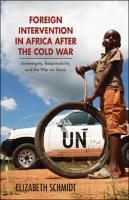

#livebooksĬhikane says that the so-called “Mbeki-documents” were reported about in The Guardian UK, picked up by SA papers #livebooksĬhikane traced it back to Lusaka, were a stringer for Reuters reported it. #livebooksĬhikane mentions had heard that ANC asked for land reform to be postponed because SA was going through transformation #livebooksĬhikane says this history was later forgotten when Zimbabwe was denied help with land reform. revfchikane refers to the promise by the British to help finance land reform in Zimbabwe. He also mentioned his autobiography No Life of My Own, written underground during apartheid, which has been reprinted #livebooks revfchikane explains that when writing Eight Days in September, publisher said he had two books in one, so he broke it in 2 #livebooks “I can understand that Zimbabwe is such an emotional topic,” Chikane said, since both black and white people had been affected, “But now we need to move forward to a better Zimbabwe for all.” That the land needed to be giving back to the people, no one can dispute, Chikane says, but the violent way in which it happened, due to a lack of support for the process, was not the best way for it to come about. With regard to Zimbabwe, Chikane reminded the audience about the British promise to help finance land reform, which never came to pass. “Everyone thinks that HIV policy remained a problem until Mbeki left, but they are wrong.” The outline for our current HIV/Aids policy was crafted during that period, he says. Chikane admits that there were problems with the HIV/Aids policy during Mbeki’s term, but by 2003, he says, it was back on track. He researched Nevirapine and was concerned that it was prescribed differently in poorer countries than in richer nations. On the topic of Mbeki’s Aids policy, Chikane said that the former president, “a brilliant man”, did not simply accept it when he was told to use certain drugs to treat the disease. “And there are still some copies missing!” He had demanded that the Commission track down all copies of the report to paste an in erratum note in them. “It took four years before they eventually corrected it,” Chikane said. It was in my office and I had to take off my shoes!”Ĭhikane also writes about his problems with the TRC, because they included in their report the fact that a man with the surname Chikane had wiped out a family, but accidentally called this man “Frank Chikane” instead of his actual name. It’s even more humbling to have your feet washed. “I don’t want to hold onto the past.” He described the experience of having his feet washed, saying, “If you think it’s humbling to wash somebody’s feet, think again. “Forgiving is not a problem for me,” Chikane said. Vlok sought forgiveness and washed Chikane’s feet to show that he repented. It was only later that Chikane took up the matter with the NPA and Adriaan Vlok admitted that he was involved. During the Truth and Reconciliation Commission (TRC) hearings, the culprits did not come forward and Chikane felt he did not have enough evidence to accuse anyone. He had an idea who had done it, but was not sure. During the struggle against apartheid, Chikane was poisoned. “You can read about my fight with the National Prosecuting Authority (NPA) and their handling of the Adriaan Vlok matter in the book,” Chikane said. The book contains many of his personal experiences as a struggle veteran and Director General of the Presidency under Mbeki. “I don’t tell the popular stories, promoted by the media, but I tell the real stories, as I see it.” Chikane said. But, as the guests at The Fugard Theatre learned, The Things That Could Not Be Said is also about much more than these two topics. With a subtitle like “From A(ids) to Z(imbabwe)”, any discussion about Reverend Frank Chikane’s new book, The Things That Could Not Be Said, is sure to touch on some controversial questions – and Chikane’s talk with Minister in the Presidency Trevor Manuel at the book’s launch last night definitely did not disappoint.įollowing from his previous offering, Eight Days in September: The Removal of Thabo Mbeki, Chikane’s latest book does look at (often controversial) policy decisions made around the situation in Zimbabwe and the treatment and prevention of HIV/Aids during Thabo Mbeki’s presidency.


 0 kommentar(er)
0 kommentar(er)
